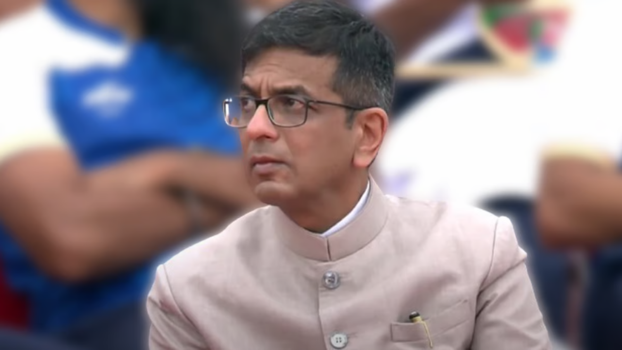Chief Justice of India (CJI) DY Chandrachud recently advocated for national-level recruitment of judges for the district judiciary. Speaking at the valedictory session of the National Conference on the District Judiciary, organized to mark 75 years of the Supreme Court of India, the CJI emphasized the need for a unified judicial service across the country.
“The time has truly come to think of national integration by recruiting members to the judicial services, transcending the narrow domestic walls of regionalism and state-centered selections,” CJI Chandrachud stated.
The idea of establishing an All India Judicial Service (AIJS) has been discussed for years, but progress has stalled due to differing opinions among stakeholders. Notably, President Droupadi Murmu also called for such a system in November last year, highlighting its potential to help candidates from underprivileged backgrounds join the judiciary.
The AIJS concept was first recommended by the Law Commission of India in its 116th Report in 1986, and the Supreme Court in 1992 urged the Central government to examine and implement these recommendations expeditiously. Despite formal discussions by the Law Ministry in 2017, and the Supreme Court’s refusal in 2018 to entertain a public interest litigation (PIL) seeking AIJS implementation, consensus has remained elusive. As of 2021, eight states and 13 high courts opposed the initiative, while the Central government maintained that a properly framed AIJS is essential for strengthening the justice delivery system.
During his address, CJI Chandrachud emphasized that justice delivery is an essential service but acknowledged the challenges posed by the large backlog of cases. He noted that judicial vacancies at the district level stand at 28%, while non-judicial staff vacancies are at 27%, calling for courts to operate at full capacity to address the case backlog.
The CJI also highlighted the inadequate court infrastructure at the district level, particularly for women, pointing out that only 6.7% of district court infrastructure is female-friendly. He stressed the importance of confronting biases and ensuring that increasing numbers of women in the judiciary are supported with appropriate facilities and a bias-free work environment.
CJI Chandrachud further called for destigmatizing conversations around the mental well-being of judges. He underscored the importance of addressing the unique stressors of judicial work and promoting mental health and wellness initiatives within the judiciary, stating that judicial wellness is vital for upholding the rule of law and maintaining public confidence.
Additionally, the CJI highlighted efforts to foster a sense of independence and confidence in young judges by ensuring that the judicial system protects them, provides dignified working conditions, and secures financial stability for the judiciary.
President Droupadi Murmu, speaking in Hindi at the event, praised the Supreme Court’s role as a vigilant sentinel of the judicial system in the world’s largest democracy. She urged judges and judicial officers to uphold dharma, truth, and justice, particularly at the district level, where this responsibility serves as a beacon for the judiciary.
The President also expressed concern for the victims and children of women subjected to crimes, emphasizing the need for their welfare to be a priority. She pointed out that many rural people are hesitant to approach courts due to financial burdens and the slow pace of the justice system.
President Murmu concluded her speech by welcoming the Central government’s decision to retrospectively apply Section 479 of the Bharatiya Nagarik Suraksha Sanhita (BNSS), which allows courts to grant bail to first-time offenders who have served a third of the maximum prescribed imprisonment.

















